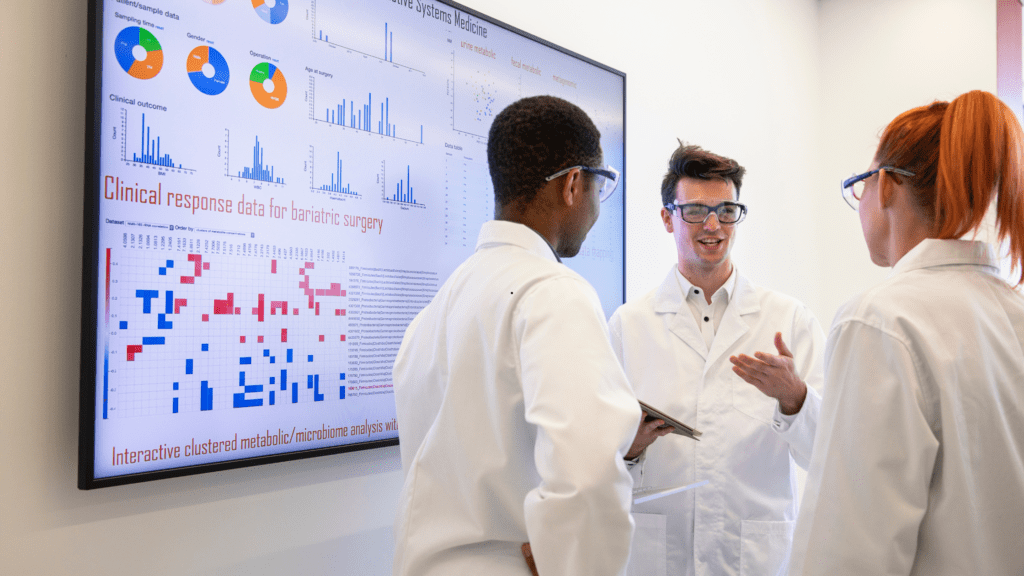The evolution of technology has radically transformed the landscape of education, bringing forth the opportunity for highly personalised learning experiences. Adaptive learning technologies and methodologies occupy a central role in this transformation, enabling tailored educational experiences that recognise individual learners’ diverse needs, abilities, and preferences. By utilising data collection, machine learning, and predictive analytics, these advanced systems can dynamically adjust content and delivery methods, ensuring each learner receives the optimal support for their unique journey. This article will explore how adaptive learning technologies and methodologies contribute to personalised learning experiences, exploring their mechanisms, benefits, and practical applications.
Adaptive learning technologies integrate educational software and data analytics to create bespoke learning journeys. These systems can analyse a learner’s interactions and performance in real time, using this data to alter learning materials’ content, pace, and difficulty. This adaptability ensures that learners are continually challenged at a level appropriate to their current understanding while providing immediate feedback and support. These technologies aim to enhance engagement, retention, and overall educational outcomes through seamless modification.
Key features of adaptive learning technologies include:
- Data Analytics: Real-time collection and analysis of learner data to inform adjustments.
- Machine Learning: Algorithms that predict learner needs and adjust content accordingly.
- Personalised Pathways: Customised learning routes based on individual progress and preferences.
- Immediate Feedback: Timely responses to learners’ actions, promoting continuous improvement.
Examples of Adaptive Learning Technologies
Several adaptive learning systems have emerged, each employing unique methodologies to cater to individualised learning needs. Here, we explore some notable examples:
| Technology | Functionality | Implementation | Benefits |
| Intelligent Tutoring Systems (ITS) | Simulates one-on-one tutoring by providing customised feedback and hints. | Widely used in STEM subjects to support problem-solving and conceptual understanding. | Improves learner outcomes through targeted support and interactive problem-solving. |
| Learning Management Systems (LMS) with Adaptive Features | Offers a flexible learning environment where content can be adjusted automatically. | Used in various educational settings, from schools to corporate training. | Enhances user engagement and knowledge retention by personalising learning paths. |
| Adaptive Assessment Tools | Adapts the complexity of questions based on learner responses. | Implemented in standardised testing environments and online education platforms. | Provides an accurate measure of learner proficiency, avoiding the one-size-fits-all assessment approach. |
| Personalised Learning Platforms | Customises the learning experience based on individual learner profiles. | Used in school education, higher education, and professional development. | Increases student motivation and achievement by tailoring content to individual needs. |
| Game-Based Learning Systems | Utilises game mechanics to create engaging learning experiences. | Applied in educational games for schools and higher education. | Enhances motivation and retention through interactive and immersive learning activities. |
| Content Recommendation Engines | It helps learners discover relevant materials, enhancing the learning experience. | Integrated into online learning platforms and digital libraries. | Helps learners discover relevant materials, enhancing the learning experience. |
| Virtual Learning Environments (VLE) | Simulates real-world environments for experiential learning. | Used in vocational training, medical education, and STEM subjects. | Provides hands-on experience in a safe and controlled virtual setting. |
| Analytics-Driven Educational Tools | Analyses learner data to inform instructional strategies. | Employed in schools, universities, and e-learning platforms. | Improves instructional effectiveness by providing insights into learner performance and needs. |
Benefits and Challenges of Adaptive Learning Technologies
Implementing adaptive learning technologies brings many benefits but also presents several challenges that must be acknowledged and addressed.
Benefits
- Personalisation: Offers a customised learning experience that caters to individual learner needs.
- Efficiency: Optimises learning time by focusing on areas where the learner needs improvement.
- Engagement: Increases learner motivation and interest through tailored content and immediate feedback.
- Scalability: Facilitates personalised learning on a large scale, which would be impossible with traditional methods.
Challenges
- Implementation Cost: Initial setup and ongoing maintenance can be expensive.
- Data Privacy and Security: Ensuring learner data is protected is paramount.
- Technology Reliance: Dependence on technology can be a barrier in low-resource settings.
- User Familiarity and Training: Both educators and learners must be adequately trained to use these systems effectively.
Adaptive Learning Methodologies
Adaptive learning methodologies are the theoretical frameworks and instructional strategies that guide the implementation of adaptive technologies. These methodologies vary, but they aim to create a responsive and enriching learning environment tailored to individual learner needs. One prominent adaptive learning methodology is mastery learning, which emphasises the importance of learner proficiency before progression. This approach utilises adaptive assessments to ensure comprehension, requiring students to fully understand a topic before moving on to more advanced material. By focusing on mastery, this methodology helps close learning gaps and ensures a solid foundation of knowledge for each student.
Another key methodology is competency-based learning, which shifts the focus from traditional time-based education to skill acquisition. This framework allows learners to progress based on demonstrated competencies rather than time spent in class. Adaptation in this context is driven by the learner’s ability to exhibit specific skills, enabling a personalised pace of learning. Competency-based learning recognises that learners have different strengths and learning speeds, providing a more customised educational experience that aligns with individual goals and career aspirations.
The flipped classroom is another notable adaptive learning methodology that has recently gained popularity. Learners review instructional content at home in this model, typically through videos, readings, or other digital resources. Classroom time is then dedicated to adaptive learning activities, such as hands-on projects, group work, and interactive problem-solving. This approach allows for more personalised instruction during class, as teachers can focus on addressing individual learning needs and facilitating deeper understanding through active learning strategies.
These methodologies employ adaptive learning principles to create more effective and personalised educational experiences. These methodologies aim to enhance learner engagement, improve outcomes, and prepare students for future success by incorporating adaptive assessments, focusing on skill acquisition, and reimagining classroom time. Through the thoughtful application of adaptive learning strategies, educators can create a more inclusive and dynamic learning environment that supports the diverse needs of all learners.
Comparison of Adaptive Learning Methodologies
| Methodology | Key Features | Benefits | Challenges |
| Mastery Learning | Detailed, step-by-step learning journey | Ensures thorough understanding | Time-consuming |
| Competency-Based | Skills and competency-focused assessments | Clearly defined learning outcomes | Requires robust assessment strategies |
| Flipped Classroom | Home review with in-class adaptive activities | Maximises in-class learning time | Requires access to home technology |
Conclusion
The advent of adaptive learning technologies and methodologies marks a significant milestone in pursuing personalised education. By aligning content, pace, and feedback with individual learning needs, these tools maximise educational outcomes and nurture an engaging learning experience. Despite challenges related to cost, data security, and technology dependence, the potential benefits make a compelling case for their integration into modern education systems. As adaptive learning technologies continue to evolve, educators and learners alike stand to gain from an increasingly responsive and effective educational environment.



